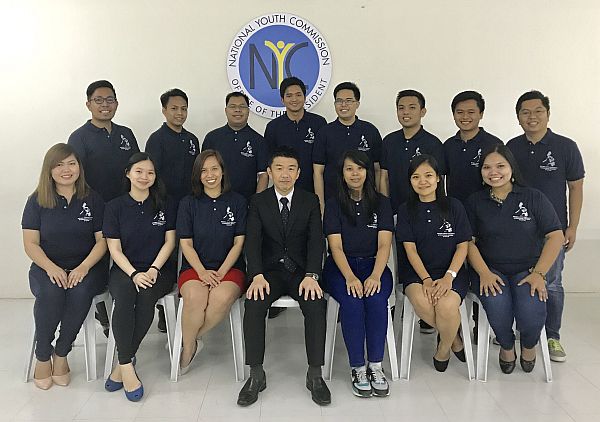14 young Filipinos now in Japan for goodwill exchange program

The Filipino delegates at Japan-East Asia Network of Exchange for Students and Youths headed by Alphonse Estacio.
contributed photo
Fourteen university students and young professionals are now in Japan as part of the Japan-East Asia Network of Exchange for Students and Youths (Jenesys) batch 9 to be held in Tokyo and neighboring cities from May 16 to 23 under the theme, “Economic partnerships, trade and investment.”
The Jenesys program is implemented by the Japan government, through the Japan International Cooperation Center (JICE) and the Japan Information and Cultural Center of the Embassy of Japan in the Philippines.
In the Philippines, the National Youth Commission (NYC) under the Office of the President implements the Jenesys program, which aims to promote a global understanding of Japan’s economics, society, politics and foreign affairs.
“The 14 young leaders, who come from different universities and professions, were chosen from 210 applicants,” said Sarah Grutas of the NYC’s International Programs Unit – Social Marketing Division.
The seven university students are: Christian Rey Notario (Ateneo De Manila University), Raven Alla (Ateneo De Manila University), Tricia Mae Villarosa (University of Santo Tomas), Andrea Jasmine Yu (University of the Philippines Diliman), Nelson Kersey Natata (UP Diliman), Salem Barrat (Mindanao State University – Iligan Institute of Technology) and Angelo Jethro Del Rosario (UP Visayas).
The seven young professionals are: Cris Evert Lato-Ruffolo (journalist), Marian Lujan (financial analyst), Jenn Krystel Zaraspe (lawyer), Alphonse Estacio (key account manager), Ador Hurtado (tourism officer), Ma. Theresa Banta (process engineer) and Inero Ancho (assistant professor).
Toshiyuki Taguchi, researcher and adviser of the Embassy of Japan in the Philippines – Japan Information and Culture Center, said Jenesys is an investment in the future of the relationships among nations.
He said the youth exchange program has a two-fold impact.
“First, in the immediate term, it promotes cultural exchanges and internationalization and this applies to both the participants and the communities,” said Taguchi in his message during the pre-departure orientation on May 14.
“Second, in the long term, it helps improve relations among nations through networks of friendships formed among participating countries, thus making international cooperation possible,” added Taguchi.
Delegation leader Alphonse Estacio said this batch adapted the name “Sulon9,” a combination of the Filipino word “sulong” (to move forward) and the number nine.
“Our batch name encapsulates the kind of progress that we want to live and work on after this journey in Japan. We learn from Japan’s examples in the fields of economic partnerships, trade and investment during our stay in the country and then utilize our learnings in the projects that we are involve in, in the works that we do and even in our daily undertakings,” said Estacio.
Under the program, JICE sponsored the delegates’ international transportation, travel tax, meals, accommodation and other local hospitalities for the duration of the activity. /PR
Disclaimer: The comments uploaded on this site do not necessarily represent or reflect the views of management and owner of Cebudailynews. We reserve the right to exclude comments that we deem to be inconsistent with our editorial standards.
